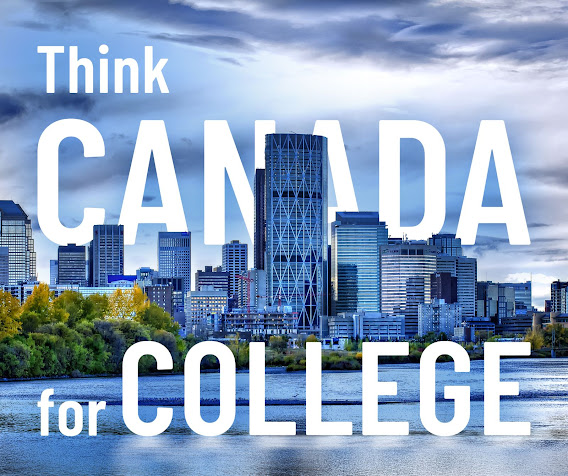Many students (or their parents) have set their hearts on admission to the top 20 undergraduate or graduate programs in the United States. They may think that, without a degree from MIT or Stanford, they’ll have little chance at a successful career at a North American company after graduation.
Not true! One exciting educational opportunity worth pursuing is university in Canada—at either the undergrad or grad level. Canadian universities offer a complete array of programs in the sciences, the social sciences, medical fields, engineering, business, the arts and humanities, and more. Several universities rank among the top 50 in the world (for instance, the University of Toronto, the University of British Columbia, and McGill), but even if you are not at the top of your class, there’s still a wide range of excellent colleges from which to choose. Of course, English is the primary language of instruction at most Canadian universities, but if your French is strong, you might even consider colleges in the French-speaking province of Quebec, home to the University of Montreal, Laval University, and others. (Incidentally, McGill is also in Quebec, but it’s actually one of just three English-language universities there.)
A benefit of obtaining your college degree in Canada—either undergraduate or graduate—is that tuition and other fees for international students tend to be cheaper than at U.S. universities. For example, for the 2020–2021 school year at Stanford, tuition and fees (not including room and board) for international students add up to a whopping $55,796 for undergrads and $55,011 for grad students, regardless of your major. In contrast, at the University of British Columbia, tuition ranges from $37,460 to $51,635, depending on your field of study, with majors in music, fine arts, computer science, nursing, architectural design, and environmental design falling at the less expensive end of the scale. Commerce (business), medical laboratory sciences, and applied sciences are at the higher end. Fees (not including room and board) add another $1,000 to $1,400 per year, except for commerce, where the fees add up to $1,900 per year. Although business is one of the more expensive majors at the University of British Columbia, Maclean’s University Guide ranks it as the top business program among all Canadian universities. And remember, scholarships and aid may be available to international students.
Other less expensive universities are worth exploring. International undergraduates at Dalhousie University currently pay between $10,098 and $13,077 in yearly tuition, whereas international master’s-degree students pay between $6,972 and $13,077, and Ph.D. students pay $9,795. Find the Canadian universities that fit your academic interests and budget. Cheaper doesn’t mean bad—not by a long shot! For example, Dalhousie University consistently ranks among the top 10 or 12 universities in Canada, and its medical school ranks 7th. Employers gladly hire Dalhousie graduates.
Another important benefit of studying in Canada is that you considerably increase your chances of getting a job in Canada after graduation. As you probably know, Canada has recently made available two new dedicated paths to permanent residency, one for students and the other for young workers from Hong Kong.
The first path is aimed at students from Hong Kong who have graduated from university in Canada—and that can be you! This pathway applies to students who have obtained either their undergraduate or graduate degree in Canada. You can apply directly as soon as you complete your degree.
For the second path, starting in 2021, if you already have obtained your college degree within the last five years, you can apply for an “open work permit,” which allows you to work in Canada for up to three years. Whether you obtained your degree in Hong Kong, in Canada, or elsewhere, you may be eligible. There are minimum language and education criteria, plus you must have one year of work experience in Canada before applying.
The possibility of gaining permanent residency in Canada makes exploring Canadian universities all the more valuable, especially given the relative ease (compared to the United States) with which Hong Kong residents can gain permanent residency in Canada.
Please Like and Share this post and Helppo's page if you found this essay helpful. Feel free to make an appointment with our tutors or admission consultants if you need help. We look forward to hearing from you!




